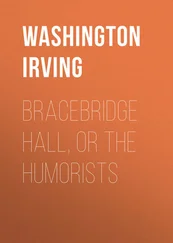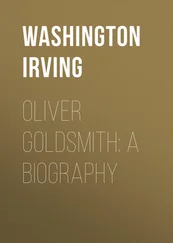Washington Irving - Spanish Papers
Здесь есть возможность читать онлайн «Washington Irving - Spanish Papers» — ознакомительный отрывок электронной книги совершенно бесплатно, а после прочтения отрывка купить полную версию. В некоторых случаях можно слушать аудио, скачать через торрент в формате fb2 и присутствует краткое содержание. Жанр: literature_19, foreign_antique, foreign_prose, на английском языке. Описание произведения, (предисловие) а так же отзывы посетителей доступны на портале библиотеки ЛибКат.
- Название:Spanish Papers
- Автор:
- Жанр:
- Год:неизвестен
- ISBN:нет данных
- Рейтинг книги:4 / 5. Голосов: 1
-
Избранное:Добавить в избранное
- Отзывы:
-
Ваша оценка:
- 80
- 1
- 2
- 3
- 4
- 5
Spanish Papers: краткое содержание, описание и аннотация
Предлагаем к чтению аннотацию, описание, краткое содержание или предисловие (зависит от того, что написал сам автор книги «Spanish Papers»). Если вы не нашли необходимую информацию о книге — напишите в комментариях, мы постараемся отыскать её.
Spanish Papers — читать онлайн ознакомительный отрывок
Ниже представлен текст книги, разбитый по страницам. Система сохранения места последней прочитанной страницы, позволяет с удобством читать онлайн бесплатно книгу «Spanish Papers», без необходимости каждый раз заново искать на чём Вы остановились. Поставьте закладку, и сможете в любой момент перейти на страницу, на которой закончили чтение.
Интервал:
Закладка:
CHAPTER XI
Measures of Don Roderick on Hearing of the Invasion. – Expedition of Ataulpho. – Vision of Taric.
When Don Roderick heard that legions of turbaned troops had poured into the land from Africa, he called to mind the visions and predictions of the necromantic tower, and great fear came upon him. But, though sunk from his former hardihood and virtue, though enervated by indulgence, and degraded in spirit by a consciousness of crime, he was resolute of soul, and roused himself to meet the coming danger. He summoned a hasty levy of horse and foot, amounting to forty thousand; but now were felt the effects of the crafty counsel of Count Julian, for the best of the horses and armor intended for the public service had been sent into Africa, and were really in possession of the traitors. Many nobles, it is true, took the field with the sumptuous array with which they had been accustomed to appear at tournaments and jousts, but most of their vassals were destitute of weapons, and cased in cuirasses of leather, or suits of armor almost consumed by rust. They were without discipline or animation; and their horses, like themselves, pampered by slothful peace, were little fitted to bear the heat, the dust, and toil of long campaigns.
This army Don Roderick put under the command of his kinsman Ataulpho, a prince of the royal blood of the Goths, and of a noble and generous nature; and he ordered him to march with all speed to meet the foe, and to recruit his forces on the way with the troops of Theodomir.
In the mean time, Taric el Tuerto had received large reinforcements from Africa, and the adherents of Count Julian and all those discontented with the sway of Don Roderick had flocked to his standard; for many were deceived by the representations of Count Julian, and thought that the Arabs had come to aid him in placing the sons of Witiza upon the throne. Guided by the count, the troops of Taric penetrated into various parts of the country, and laid waste the land; bringing back loads of spoil to their stronghold at the rock of Calpe.
The Prince Ataulpho marched with his army through Andalusia, and was joined by Theodomir with his troops; he met with various detachments of the enemy foraging the country, and had several bloody skirmishes; but he succeeded in driving them before him, and they retreated to the rock of Calpe, where Taric lay gathered up with the main body of his army.
The prince encamped not far from the bay which spreads itself out before the promontory. In the evening he dispatched the veteran Theodomir, with a trumpet, to demand a parley of the Arab chieftain, who received the envoy in his tent, surrounded by his captains. Theodomir was frank and abrupt in speech, for the most of his life had been passed far from courts. He delivered, in round terms, the message of the Prince Ataulpho; upbraiding the Arab general with his wanton invasion of the land, and summoning him to surrender his army or to expect no mercy.
The single eye of Taric el Tuerto glowed like a coal of fire at this message. “Tell your commander,” replied he, “that I have crossed the strait to conquer Spain, nor will I return until I have accomplished my purpose. Tell him I have men skilled in war, and armed in proof, with whose aid I trust soon to give a good account of his rabble host.”
A murmur of applause passed through the assemblage of Moslem captains. Theodomir glanced on them a look of defiance, but his eye rested on a renegado Christian, one of his own ancient comrades, and a relation of Count Julian. “As to you, Don Graybeard,” said he, “you who turn apostate in your declining age, I here pronounce you a traitor to your God, your king, and country; and stand ready to prove it this instant upon your body, if field be granted me.”
The traitor knight was stung with rage at these words, for truth rendered them piercing to the heart. He would have immediately answered to the challenge, but Taric forbade it, and ordered that the Christian envoy should be conducted from the camp. “’Tis well,” replied Theodomir; “God will give me the field which you deny. Let yon hoary apostate look to himself to-morrow in the battle, for I pledge myself to use my lance upon no other foe until it has shed his blood upon the native soil he has betrayed.” So saying, he left the camp, nor could the Moslem chieftains help admiring the honest indignation of this patriot knight, while they secretly despised his renegado adversary.
The ancient Moorish chroniclers relate many awful portents and strange and mysterious visions, which appeared to the commanders of either army during this anxious night. Certainly it was a night of fearful suspense, and Moslem and Christian looked forward with doubt to the fortune of the coming day. The Spanish sentinel walked his pensive round, listening occasionally to the vague sounds from the distant rock of Calpe, and eying it as the mariner eyes the thunder-cloud, pregnant with terror and destruction. The Arabs, too, from their lofty cliffs, beheld the numerous camp-fires of the Christians gradually lighted up, and saw that they were a powerful host; at the same time the night breeze brought to their ears the sullen roar of the sea which separated them from Africa. When they considered their perilous situation, – an army on one side, with a whole nation aroused to reinforce it, and on the other an impassable sea, – the spirits of many of the warriors were cast down, and they repented the day when they had ventured into this hostile land.
Taric marked their despondency, but said nothing. Scarce had the first streak of morning light trembled along the sea, however, when he summoned his principal warriors to his tent. “Be of good cheer,” said he; “Allah is with us and has sent his Prophet to give assurance of his aid. Scarce had I retired to my tent last night, when a man of a majestic and venerable presence stood before me. He was taller by a palm than the ordinary race of men, his flowing beard was of a golden hue, and his eyes were so bright that they seemed to send forth flashes of fire. I have heard the Emir Bahamet, and other ancient men, describe the Prophet, whom they had seen many times while on earth, and such was his form and lineament. ‘Fear nothing, O Taric, from the morrow,’ said he; ‘I will be with thee in the fight. Strike boldly, then, and conquer. Those of thy followers who survive the battle will have this land for an inheritance; for those who fall a mansion in Paradise is prepared, and immortal houries await their coming.’ He spake and vanished; I heard a strain of celestial melody, and my tent was filled with the odors of Arabia the Happy.” “Such,” say the Spanish chroniclers, “was another of the arts by which this arch son of Ishmael sought to animate the hearts of his followers; and the pretended vision has been recorded by the Arabian writers as a veritable occurrence. Marvelous, indeed, was the effect produced by it upon the infidel soldiery, who now cried out with eagerness to be led against the foe.”
CHAPTER XII
Battle of Calpe. – Fate of Ataulpho.
The gray summits of the rock of Calpe brightened with the first rays of morning, as the Christian army issued forth from its encampment. The Prince Ataulpho rode from squadron to squadron, animating his soldiers for the battle. “Never should we sheathe our swords,” said he, “while these infidels have a footing in the land. They are pent up within you rocky mountain; we must assail them in their rugged hold. We have a long day before us; let not the setting sun shine upon one of their host who is not a fugitive, a captive, or a corpse.”
The words of the prince were received with shouts, and the army moved towards the promontory. As they advanced, they heard the clash of cymbals and the bray of trumpets, and the rocky bosom of the mountain glittered with helms and spears and scimetars; for the Arabs, inspired with fresh confidence by the words of Taric, were sallying forth, with flaunting banners, to the combat.
Читать дальшеИнтервал:
Закладка:
Похожие книги на «Spanish Papers»
Представляем Вашему вниманию похожие книги на «Spanish Papers» списком для выбора. Мы отобрали схожую по названию и смыслу литературу в надежде предоставить читателям больше вариантов отыскать новые, интересные, ещё непрочитанные произведения.
Обсуждение, отзывы о книге «Spanish Papers» и просто собственные мнения читателей. Оставьте ваши комментарии, напишите, что Вы думаете о произведении, его смысле или главных героях. Укажите что конкретно понравилось, а что нет, и почему Вы так считаете.












